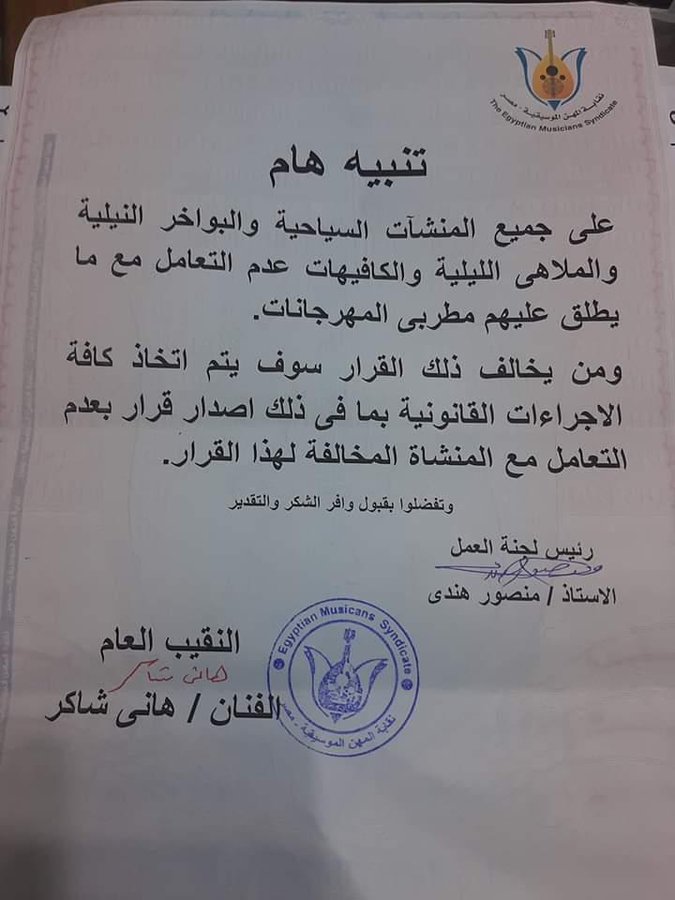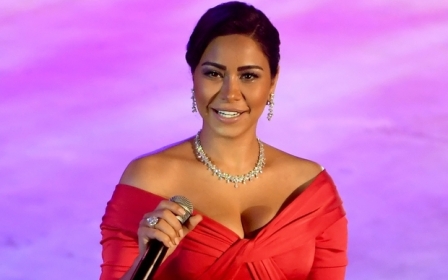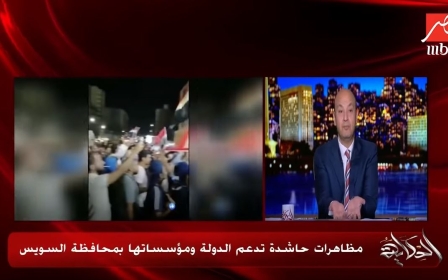Egypt just banned ‘mahraganat’ music: Listen to five of the most popular tracks

Egypt’s musician’s union has banned the popular street music mahraganat after one song was deemed too "immoral" for the Arab world's most populous country.
The head of the Musicians Syndicate, singer Hany Shaker, said on Sunday that mahraganat singers would no longer be allowed to work in Egypt, and would be denied licences to perform anywhere in the country.
“This type of music is based on promiscuous and immoral lyrics, which is completely prohibited, and as such, the door is closed on it. We want real art,” he said in an interview with pro-government host Amr Adeeb.
Mahraganat, Arabic for "festivals", is a style of electronic folk music that originally started out in some of Egypt’s most impoverished districts and quickly gained prominence, with artists amassing millions of views on YouTube and SoundCloud.
The style of music, which can be described as "electro shaabi" (popular working-class music) is typically played in taxis, tuktuks and more recently, weddings.
New MEE newsletter: Jerusalem Dispatch
Sign up to get the latest insights and analysis on Israel-Palestine, alongside Turkey Unpacked and other MEE newsletters
In a press release that has circulated widely on social media, the syndicate warns all tourist establishments, including Nile cruises, nightclubs, fairs and cafes, not to deal with mahraganat singers.
The decree also states that the syndicate would take all legal measures possible against the singers and the establishments that deal with them if they violate the decision.
The ban came after a Valentine’s Day concert held in Cairo Stadium, where popular mahraganat artists Hassan Shakoush and Omar Kamal perfomed the song "The Neighbour's Daughter", whose lyrics notably include: “If you break up with me... I will drink alcohol and smoke weed”.
Alcohol and marijuana are considered taboos in Egyptian society.
The genre of music started in poorer slums and areas of Cairo around 2006, when DJs and music artists started combining influences of grime and rap with Egyptian shaabi music.
It quickly became a way for people to express their feelings about politics and the ongoing turmoil in the country, particularly during the 2011 revolution which ousted long-time president Hosni Mubarak. The music, fast and loud, was made using cheap computers at home by people who could not access expensive studios.
Since then, mahraganat has commonly been used by young, burgeoning artists to highlight social issues.
The style of music is considered to be "lower class" or vulgar by more traditional or conservative listeners, due to its use of explicit language and favoured topics, some of which include drugs and violence.
Initially, the genre was not given attention or airtime within Egyptian society nor on radio stations. However its rapid growth in popularity has resulted in a rise of music producers capitalising on its success.
The banning of the music style has caused outrage on social media, with people posting satirical posts and suggesting that this is a threat to Egyptian culture and society.
Social media users have criticised Shaker for the decision, claiming that banning the genre of music will only make people want it more.
Popular mahraganat singer Mohamed Ramadan, who has amassed more than eight million subscribers on YouTube, caused controversy last year, when he posted a rap video entitled "They Want Chaos" - taking a subtle swipe at actor-turned-whistleblower Mohamed Ali.
In the music video, the singer claims that Ali is a failed man and knows nothing about life on the streets because he is too busy in cabarets.
Here are some of the top mahraganat songs that have gained prominence in Egypt in recent years:
1. ‘Bent el-garan’ (The neighbour's daughter) by Hassan Shakoush
2. ‘Hagarein al-shisha’ (Two coals on a shisha) by Hoba
3. 'Elaab Yala' (Play, dude) by Oka Wi Ortega
4. ‘Bayza eshti’ (My life is ruined) by Hamo Bika
5. 'Wedaa ya donya, wedaa' (Farewell world, farewell) by Hamo Bika
Middle East Eye delivers independent and unrivalled coverage and analysis of the Middle East, North Africa and beyond. To learn more about republishing this content and the associated fees, please fill out this form. More about MEE can be found here.






